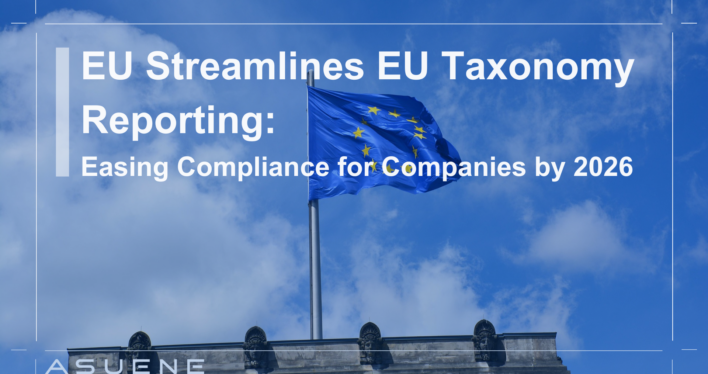- Article Summary
-
Overview
The European Commission recently adopted a Delegated Act simplifying the EU Taxonomy reporting framework, effective from January 1, 2026. This initiative significantly reduces reporting obligations for businesses, particularly benefiting SMEs and financial institutions by introducing clear materiality thresholds and streamlined reporting templates. This article explores the key changes, the rationale behind these updates, and provides strategic guidance for businesses preparing for these new regulations.
Key Changes by 2026
The EU has introduced a range of significant changes to reduce complexity and administrative burdens:
- Materiality Threshold: Companies are exempt from detailed Taxonomy reporting for activities representing less than 10% of their revenue, capital expenditures (CapEx), or operating expenditures (OpEx).
- Simplified OpEx Reporting: Non-financial firms now only need to report total OpEx and justify immateriality, removing the requirement for detailed alignment assessments.
- Reduced Reporting Requirements: Reporting templates have been streamlined significantly, resulting in a 64% reduction in mandatory data points for non-financial companies and an 89% reduction for financial institutions, including simplified Green Asset Ratio (GAR) disclosures.
- Clarified DNSH Criteria: “Do No Significant Harm” (DNSH) guidelines, especially around pollution prevention and chemical management, have been revised for greater clarity while maintaining robust environmental standards.

Context & Objectives
These changes are part of the broader Omnibus I package, designed to alleviate administrative burdens within the EU’s sustainability regulations. Commissioner Maria Luís Albuquerque highlighted the importance of balancing regulatory efficiency with the EU’s ambitious environmental objectives. The updates are intended to streamline compliance processes while maintaining high standards of sustainability.
Impact on Businesses
The simplification of EU Taxonomy reporting brings notable benefits and some transitional considerations:
- Reduced Compliance Costs: Decreased reporting complexity significantly lowers the time and resources businesses must allocate to sustainability compliance.
- Focused Resource Allocation: Companies can prioritize significant sustainability activities due to clearer thresholds, enhancing operational efficiency and effectiveness.
- Transition Period Considerations: Businesses may face initial adjustments and costs associated with transitioning to the new reporting structure. However, long-term benefits clearly outweigh short-term disruptions.
- Environmental Standards Upheld: Despite simplifications, sustainability and environmental protections remain rigorous, ensuring continued confidence from investors and stakeholders.
Recommendations for Businesses
Businesses are encouraged to carefully evaluate and document which activities exceed the 10% materiality threshold to clearly identify their reporting obligations. Additionally, investing in advanced technology solutions tailored specifically to manage simplified reporting criteria is advisable, ensuring compliance efficiency and accuracy. Companies should also conduct thorough reviews and update their internal sustainability policies to align with the revised DNSH criteria. Finally, it is important for businesses to strategically determine the most appropriate timeline for adopting these changes—either in the 2025 financial year or deferring implementation until 2026—based on their internal preparedness and resource availability.
Conclusion
The EU’s simplified taxonomy reporting rules represent a meaningful shift toward operational efficiency in sustainability compliance. By significantly reducing administrative demands and clarifying reporting expectations, the EU empowers businesses to integrate sustainability more effectively into their core operations. Companies that proactively embrace these changes will streamline compliance processes, enhance market competitiveness, and strengthen their position as sustainability leaders., gain competitive advantages, and reinforce their sustainability leadership in the marketplace.
Why Work with ASUENE Inc.?
Asuene is a key player in carbon accounting, offering a comprehensive platform that measures, reduces, and reports emissions, including Scope 1-3. Asuene serves over 10,000 clients worldwide, providing an all-in-one solution that integrates GHG accounting, ESG supply chain management, a Carbon Credit exchange platform, and third-party verification.
ASUENE supports companies in achieving net-zero goals through advanced technology, consulting services, and an extensive network.


